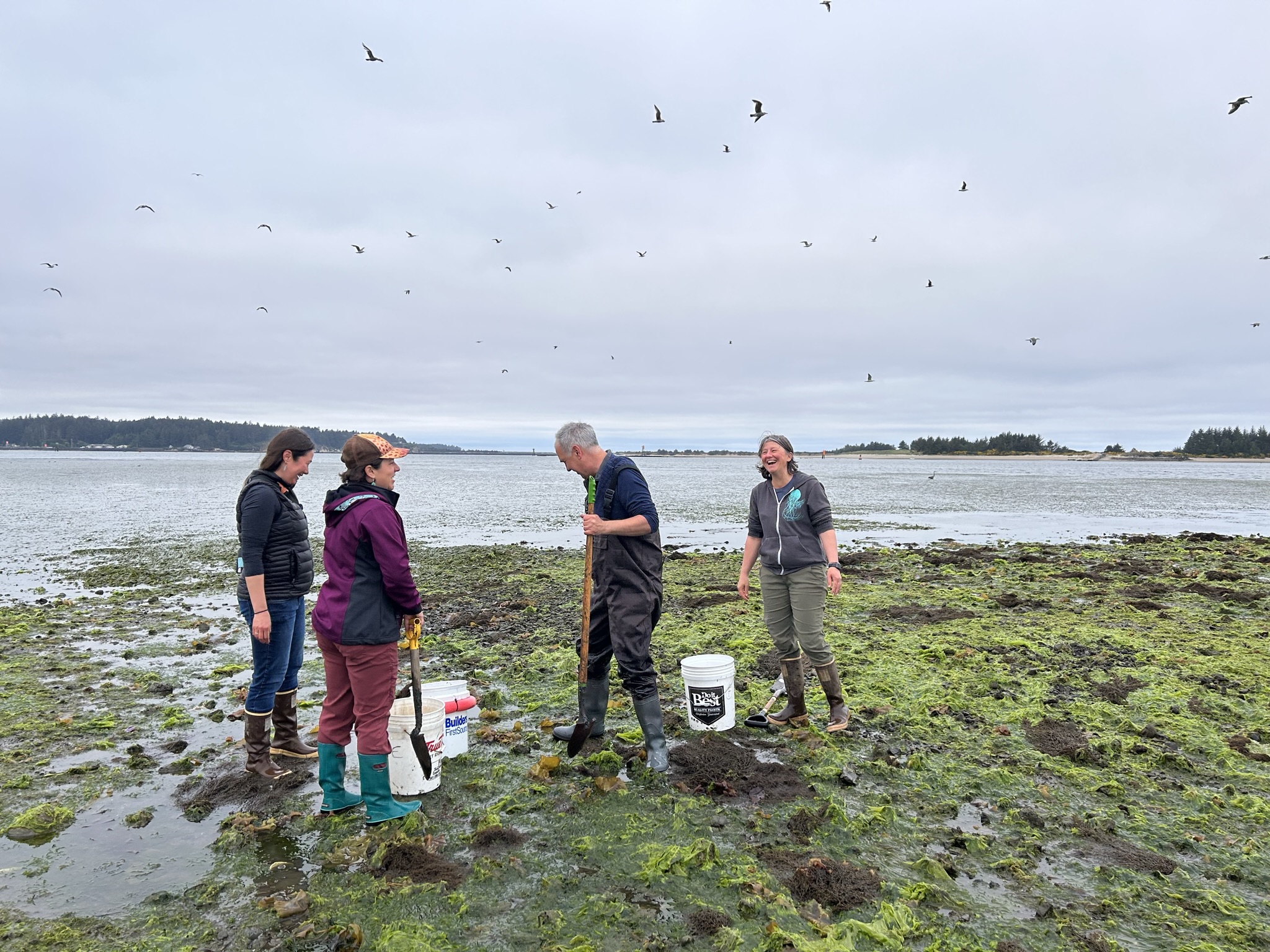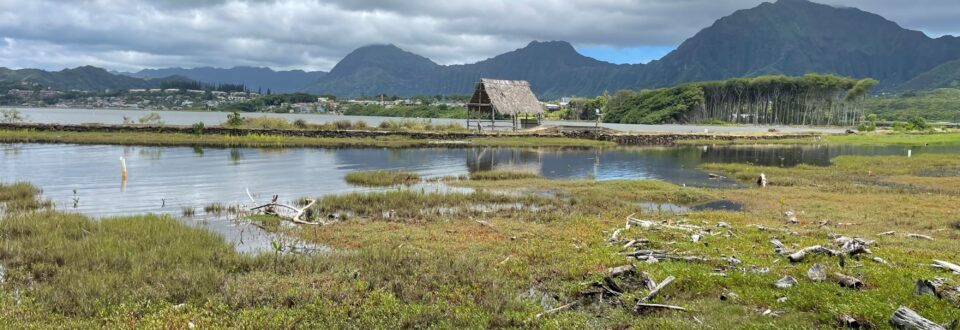
We’re thrilled to announce Pacific Birds received a 2023 National Estuarine Research Reserve System (NERRS) Science Collaborative Catalyst Grant in collaboration with four partnering Research Reserves in the Pacific region. Led by Pacific Birds, Reserve staff, Indigenous partners and local communities at Heʻeia NERR (Hawaiʻi), Kachemak Bay NERR (Alaska), Padilla Bay NERR (Washington), and South Slough NERR (Oregon), this grant will fund a year-long project to adapt and refine strategies for integrating Indigenous knowledge and Western science to improve estuary stewardship and management, with shared benefits for coastal birds and local communities.
Coastal wetlands provide essential habitats for migratory and threatened/endangered birds throughout the Pacific region. From providing breeding and overwintering habitat, to supplying food and stopover sites needed to complete their migrations, wetlands are critical to the survival of millions of birds. But the threats facing coastal wetlands – erosion, sea level rise, and development – are daunting. By linking geographically distinct Reserves, Indigenous partners and coastal communities across the Pacific region, the project will help address these challenges and benefit our shared migratory bird species.

Through this program, the combined team will share knowledge and experiences to address how we can better engage local communities and Indigenous knowledge, research and values in future conservation. It will also support vital planning on how we can better apply NERR and partner knowledge in management decisions, ultimately benefiting both migratory birds and local communities. The project aims to address needs of each reserve – from tackling climate challenges to increasing habitat resilience and restoring estuarine habitats – by strengthening partner relationships and elevating Indigenous knowledge.

While each of the four NERRs involved in the project is unique, migratory birds like the Pacific Golden-Plover (Pluvialis fulva) – named kōlea in Hawaiian and tuuliik in Yup’ik – are common threads that connect them. We’re excited about the future of this project and thankful to the NERRS Science Collaborative Catalyst Grant committee for supporting this work. If you want to learn more about each of the Research Reserves involved, follow along on our socials and check out their websites.
